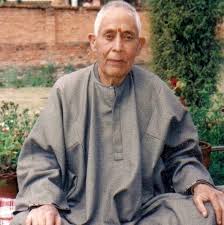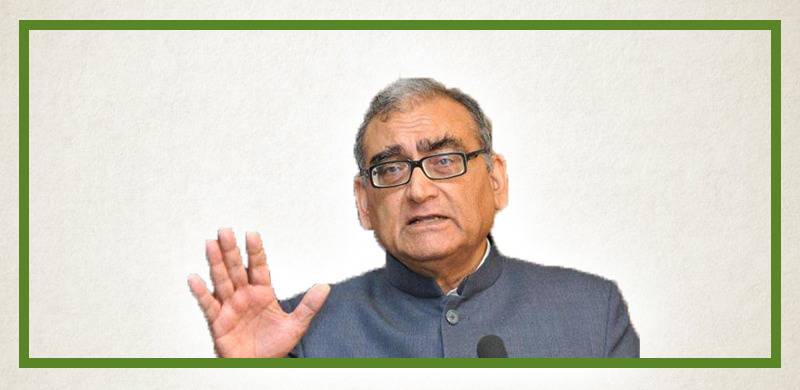
Former judge of the Indian Supreme Court, Justice Markandey Katju, writes about the attempt to change a Kashmir stadium's name after Sardar Patel. He proposes that public places in the valley should be named after notable Kashmiri figures.
An article by Junaid Kathju, titled 'Sher-e-Kashmir Cricket Stadium to be renamed after Sardar Patel', has been published on thewire.in. The article stated that this change of name would likely be declared on 15th December, the death anniversary of Sardar Patel. It was also stated therein that many roads, streets and other public places in Kashmir were also likely to be renamed.
The Chinar Foundation, a recently formed organisation consisting of Kashmiris, Hindus, Muslims and Sikhs, has strongly protested this move. While we have nothing against Sardar Patel, we believe that he had no connection with Kashmir. Therefore, it would be wholly inappropriate to name the stadium after him.
We fully agree that Sheikh Abdullah's name should be removed from all public places, institutions and organisations, since he and his family were corrupt and looted Kashmir. But we demand that in his place, the name of the stadium should be changed to Sultan Zain ul Abidin (or Budshah) Stadium, after the great secular king of Kashmir, who, like Emperor Akbar, was tolerant and was loved by all in Kashmir, be they Hindu or Muslim.
The Chinar Foundation also demands that public places, roads, streets etc, if they are to be renamed, should be given the names of the great Kashmiris – Hindus, Muslims or Sikhs – who contributed to the history, composite culture and welfare of Kashmir. Notable among them were Kalhan, a great historian; Habba Khatoon, great poet; Nooruddin Sheikh, also known as Nund Rishi, a sufi saint; Laxman Joo, a scholar of Kashmir Shaivism; Parveena Ahangar, chairperson of the Association of Parents of Disappeared Persons in Kashmir.
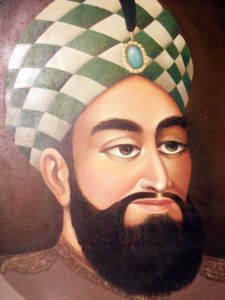
Chinar Foundation demands the immediate restoration of internet facilities and pre-paid mobile services in Kashmir, since today, these are not luxuries but necessities. Immense hardship is being caused to the people of Kashmir through the continued prohibition of these facilities. We also demand the immediate lifting of restrictions on freedom of speech and on the media, withdrawal of the curfew throughout the Kashmir Valley, and freedom for anyone intending to travel to Kashmir along with the freedom of speech, both within and outside.
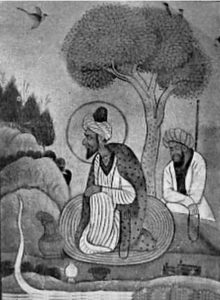
Moreover, we agree with what the celebrated Judge of the United States Supreme Court, Justice Louis Brandeis, said in Whitney vs Caifornia, 1927:
"Those who won our independence were not cowards. They did not fear political change. They did not exalt order at the cost of liberty. Fear of serious injury cannot alone justify suppression of free speech. Men feared witches and burnt women. It is the function of free speech to free men from the bondage of irrational fears.”
Even advocacy of violation of law, however reprehensible morally, is not a ground for denying free speech unless it is clear that the call for violation would be immediately acted upon.

We also agree with the 'imminent lawless action' test – the Brandenburg test – laid down by the US Supreme Court in Brandenburg vs Ohio, 1969, followed by the Indian Supreme Court in Arup Bhuyan vs State of Assam, and Sri Indra Das vs State of Assam, which alone can justify prohibition of free speech.
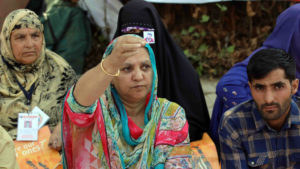
Those who wish to know about Chinar Foundation may contact its International Director, Fauzia Jalali, a Kashmiri who lives in San Jose, California, on fauziasyeda5@gmail.com.
An article by Junaid Kathju, titled 'Sher-e-Kashmir Cricket Stadium to be renamed after Sardar Patel', has been published on thewire.in. The article stated that this change of name would likely be declared on 15th December, the death anniversary of Sardar Patel. It was also stated therein that many roads, streets and other public places in Kashmir were also likely to be renamed.
The Chinar Foundation, a recently formed organisation consisting of Kashmiris, Hindus, Muslims and Sikhs, has strongly protested this move. While we have nothing against Sardar Patel, we believe that he had no connection with Kashmir. Therefore, it would be wholly inappropriate to name the stadium after him.
We fully agree that Sheikh Abdullah's name should be removed from all public places, institutions and organisations, since he and his family were corrupt and looted Kashmir. But we demand that in his place, the name of the stadium should be changed to Sultan Zain ul Abidin (or Budshah) Stadium, after the great secular king of Kashmir, who, like Emperor Akbar, was tolerant and was loved by all in Kashmir, be they Hindu or Muslim.
The Chinar Foundation also demands that public places, roads, streets etc, if they are to be renamed, should be given the names of the great Kashmiris – Hindus, Muslims or Sikhs – who contributed to the history, composite culture and welfare of Kashmir. Notable among them were Kalhan, a great historian; Habba Khatoon, great poet; Nooruddin Sheikh, also known as Nund Rishi, a sufi saint; Laxman Joo, a scholar of Kashmir Shaivism; Parveena Ahangar, chairperson of the Association of Parents of Disappeared Persons in Kashmir.

Sultan Zain Ul Abideen. Source Kashmirlife.net
Chinar Foundation demands the immediate restoration of internet facilities and pre-paid mobile services in Kashmir, since today, these are not luxuries but necessities. Immense hardship is being caused to the people of Kashmir through the continued prohibition of these facilities. We also demand the immediate lifting of restrictions on freedom of speech and on the media, withdrawal of the curfew throughout the Kashmir Valley, and freedom for anyone intending to travel to Kashmir along with the freedom of speech, both within and outside.

Nooruddin Shaikh. Source Punjab-Kavita.com
Moreover, we agree with what the celebrated Judge of the United States Supreme Court, Justice Louis Brandeis, said in Whitney vs Caifornia, 1927:
"Those who won our independence were not cowards. They did not fear political change. They did not exalt order at the cost of liberty. Fear of serious injury cannot alone justify suppression of free speech. Men feared witches and burnt women. It is the function of free speech to free men from the bondage of irrational fears.”
Even advocacy of violation of law, however reprehensible morally, is not a ground for denying free speech unless it is clear that the call for violation would be immediately acted upon.

Habba Khatoon. Source: Newagekashmir.com
We also agree with the 'imminent lawless action' test – the Brandenburg test – laid down by the US Supreme Court in Brandenburg vs Ohio, 1969, followed by the Indian Supreme Court in Arup Bhuyan vs State of Assam, and Sri Indra Das vs State of Assam, which alone can justify prohibition of free speech.

Those who wish to know about Chinar Foundation may contact its International Director, Fauzia Jalali, a Kashmiri who lives in San Jose, California, on fauziasyeda5@gmail.com.

